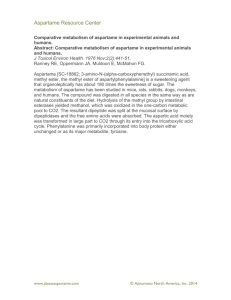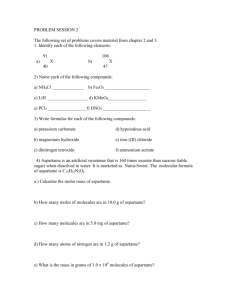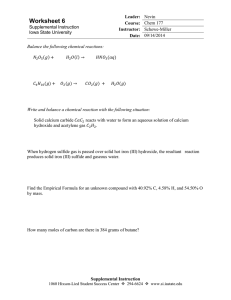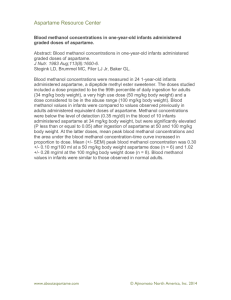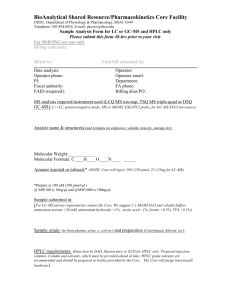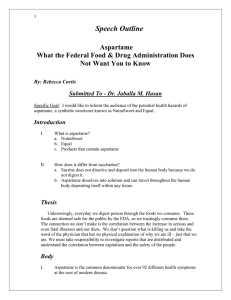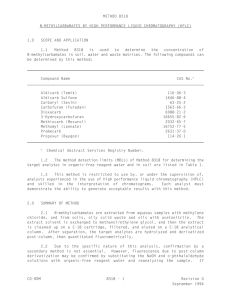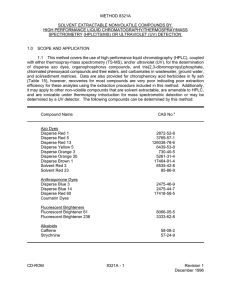Centennial Honors College Western Illinois University Undergraduate Research Day 2012
advertisement
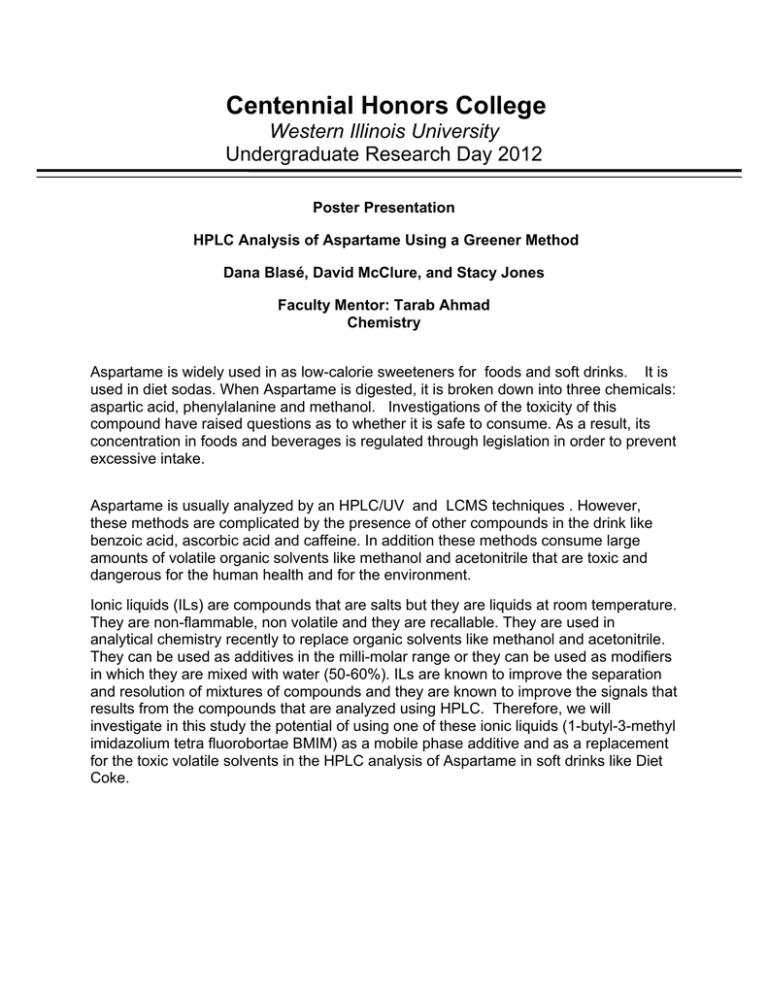
Centennial Honors College Western Illinois University Undergraduate Research Day 2012 Poster Presentation HPLC Analysis of Aspartame Using a Greener Method Dana Blasé, David McClure, and Stacy Jones Faculty Mentor: Tarab Ahmad Chemistry Aspartame is widely used in as low-calorie sweeteners for foods and soft drinks. It is used in diet sodas. When Aspartame is digested, it is broken down into three chemicals: aspartic acid, phenylalanine and methanol. Investigations of the toxicity of this compound have raised questions as to whether it is safe to consume. As a result, its concentration in foods and beverages is regulated through legislation in order to prevent excessive intake. Aspartame is usually analyzed by an HPLC/UV and LCMS techniques . However, these methods are complicated by the presence of other compounds in the drink like benzoic acid, ascorbic acid and caffeine. In addition these methods consume large amounts of volatile organic solvents like methanol and acetonitrile that are toxic and dangerous for the human health and for the environment. Ionic liquids (ILs) are compounds that are salts but they are liquids at room temperature. They are non-flammable, non volatile and they are recallable. They are used in analytical chemistry recently to replace organic solvents like methanol and acetonitrile. They can be used as additives in the milli-molar range or they can be used as modifiers in which they are mixed with water (50-60%). ILs are known to improve the separation and resolution of mixtures of compounds and they are known to improve the signals that results from the compounds that are analyzed using HPLC. Therefore, we will investigate in this study the potential of using one of these ionic liquids (1-butyl-3-methyl imidazolium tetra fluorobortae BMIM) as a mobile phase additive and as a replacement for the toxic volatile solvents in the HPLC analysis of Aspartame in soft drinks like Diet Coke.
